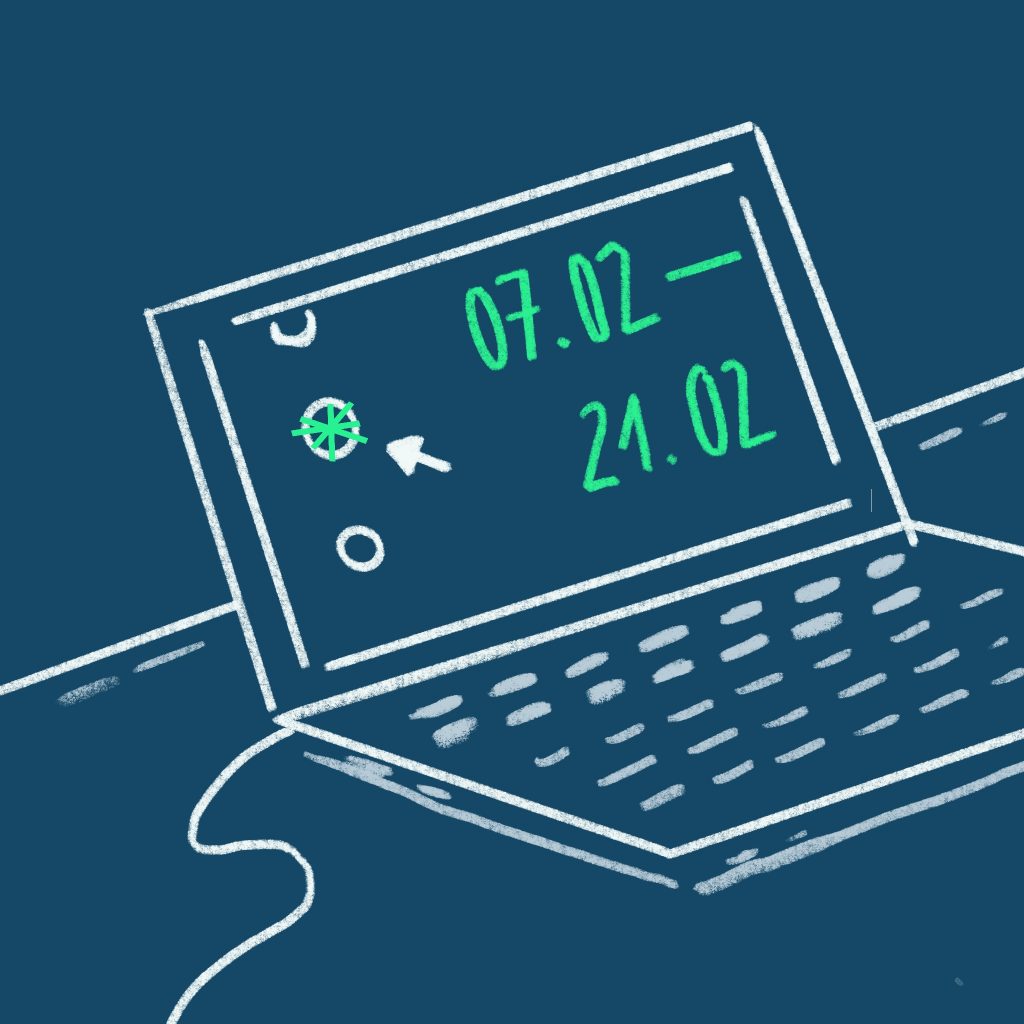University elections at Darmstadt University of Applied Sciences 2022: When? What? How?
by Caelan Novo Fernandez
Following Monday, February 7 at 9 a.m., all students at Darmstadt University of Applied Sciences can take part in the 2022 university elections. The elections will be held online again this year. The 51st student parliament, the student councils, and the student representatives in the Senate and in the faculty councils are to be elected.

When do I vote?
In the period between February 7, 2022 (9 a.m.) and February 21, 2022 (12 p.m.), all students at Darmstadt University of Applied Sciences can vote online for their student representatives. According to the General Student Committee (AStA), the election result is expected to be announced on Wednesday, February 23, 2022.
What do I vote for?
Five student representatives of the Senate can be elected. The Senate is a university body that deals with research, teaching and study matters that affect the entire university or are of fundamental importance. The faculty council has similar tasks. It decides on the development of the individual programs and the proposals for appointments to a professorship for the specific faculty. Four student representatives can be elected for each department. Tasks of the student council are the organization of parties, excursions or the provision of learning centres. The size of the student council depends on the size of the department. In the Media Department, for example, eleven members can be elected, while the department council in the Social Work Department is made up of seven elected people. The student parliament represents the entire student body, is responsible for the election of the General Student Committee (AStA) and for handling the spending of the semester fee.
The elections of the student representatives in the Senate, the faculty councils and the student councils are elections of persons: You can elect individual people for the respective committees. The election of the student parliament takes place as an election of lists. That means that you decide for a group of people, similar to a party. The list then gets a percentage of the seats in the student parliament, depending on what percentage of the votes they got in the election.
How do I vote?
During the election period (02/07/2022 to 02/21/2022) you can log in to the online election portal with the user data that is also used to log in to my.h-da or Moodle. That is the username beginning with “st” and the corresponding password. A button highlighted with flashing arrows in the portal opens the university election’s website upon a click.
Who do I vote for?
Many of the applicants for the faculty council, the student council or the senate present themselves on the website of the General Student Committee. While the applicants for the department council and the student council differ depending on the department, all students at Darmstadt University of Applied Sciences elect the student parliament. Two lists candidate for the coming legislative period: “kreativ.” and the “Student Initiative for Sustainable Development (sti:ne)”.
kreativ.
Half of the “kreativ.”-list consists of members of the Faculty of Architecture. According to the former “kreativ.”-spokesperson, Nicolas Nolte, the list also found its origin there: “Initially, ‘kreativ.’ formed, mainly in the Architecture department, as a counterpart to the ‘DieDa’ list at the time, which consisted of engineers.” If the new “kreativ.”-spokeswoman Marie Kühn would have to use one word to describe the list, it would be “diversity”. Due to the current pandemic situation, it is important to her that aid packages are provided to support the students. Furthermore, she wants to improve the language courses at Darmstadt University of Applied Sciences and the opportunities for a stay abroad.
Student Initiative for Sustainable Development (sti:ne)
The “Student Initiative for Sustainable Development” list, “sti:ne” for short, formed in 2020 and originates from the university group “Student Initiative for Sustainable Development”, although the list considers itself independent. One essential decision-making parameter for the parliamentarians of the “sti:ne”-list is the examination of the sustainability aspect. For spokesman Sebastian Dohmen “sti:ne” brings a “wind of sustainability” to the student parliament. Another initiative that the “Student Initiative for Sustainable Development” supports is the Autonomous Tutorials. Autonomous Tutorials are self-determined learning offers by students for students, the topics and content of which go beyond the usual subject-related training at the university.
Want to get involved?
You don’t have to wait until the next election. You can attend the public meetings of the university committees, engage in working groups of the General Student Committee or participate in your student council.
- Kein Platz für die AfD an der h_da?Die Linke Liste F.I.S.H. fordert klare Haltung gegen Rechtsextremismus. Die Gruppe will, dass sich das Studierendenparlament (StuPa) offiziell von der Partei AfD distanziert und erklärt: AfD und Studierendenvertretung, das passt nicht zusammen!
- S(pr)ay it loudGraue Wände werden zu Kunst, während bei nächtlichen Streifzügen das Adrenalin kickt. Graffiti ist für viele Sprayer*innen gelebte Subkultur, in der sich FLINTA* langsam aber sicher ihren rechtmäßigen Platz erkämpfen.
- Wie viel Schwammstadt steckt in Darmstadt?Wer in die Einsteinstraße im Darmstädter Stadtteil Bessungen einbiegt, fühlt sich wie in die Zukunft versetzt. Es ist wie eine Vision vom perfekten und nachhaltigen Wohnen. Sieht so eine verantwortungsvolle Politik aus? Wie positioniert sich Darmstadt im Kampf gegen den Klimawandel? Und welche Rolle spielt dabei das Konzept von Schwammstädten?



